Transcend SSD340 (256GB) Review
by Kristian Vättö on August 4, 2014 5:00 AM ESTRandom Read/Write Speed
The four corners of SSD performance are as follows: random read, random write, sequential read and sequential write speed. Random accesses are generally small in size, while sequential accesses tend to be larger and thus we have the four Iometer tests we use in all of our reviews.
Our first test writes 4KB in a completely random pattern over an 8GB space of the drive to simulate the sort of random access that you'd see on an OS drive (even this is more stressful than a normal desktop user would see). We perform three concurrent IOs and run the test for 3 minutes. The results reported are in average MB/s over the entire time.
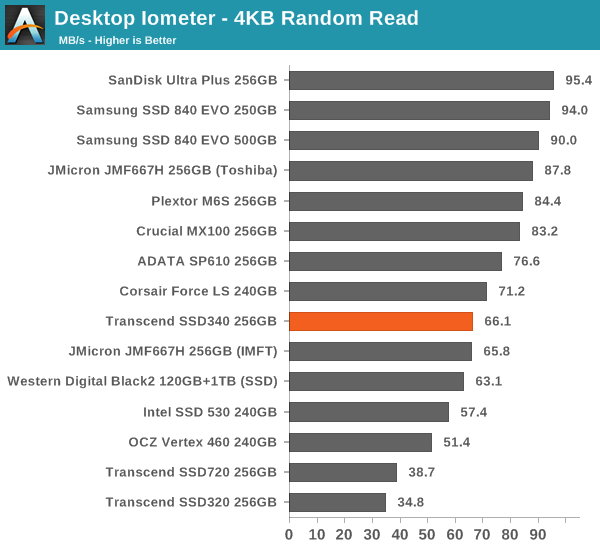


Random performance is okay and similar to the other JMF667H SSDs. Queue depth scaling has never been JMicron's strength but then again typical client workloads do not usually go above queue depth of 5 anyway.
Sequential Read/Write Speed
To measure sequential performance we run a 1 minute long 128KB sequential test over the entire span of the drive at a queue depth of 1. The results reported are in average MB/s over the entire test length.
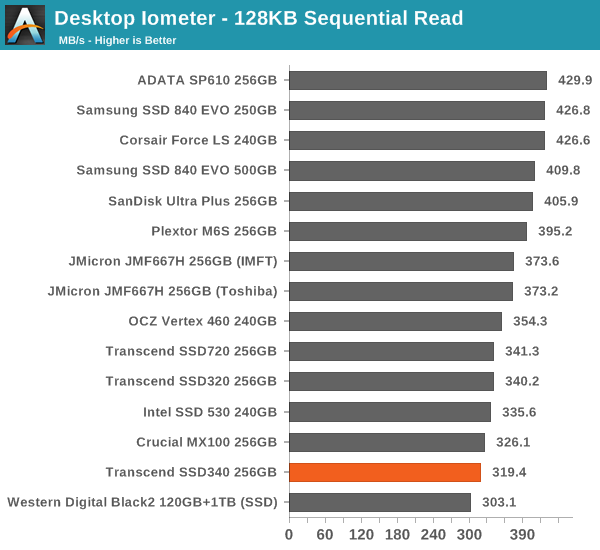
Sequential performance leaves a lot to be desired. Especially write performance is poor for a 256GB drive.
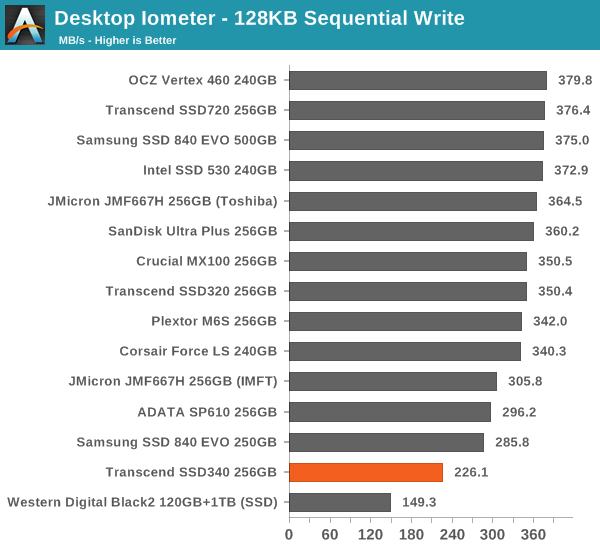
AS-SSD Incompressible Sequential Read/Write Performance
The AS-SSD sequential benchmark uses incompressible data for all of its transfers. The result is a pretty big reduction in sequential write speed on SandForce based controllers.
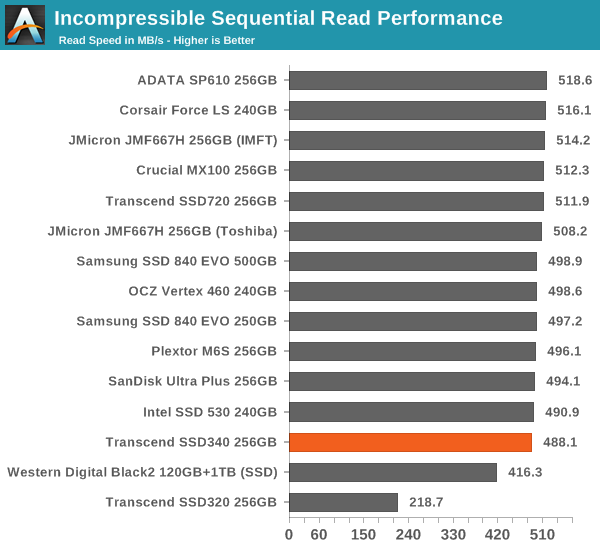
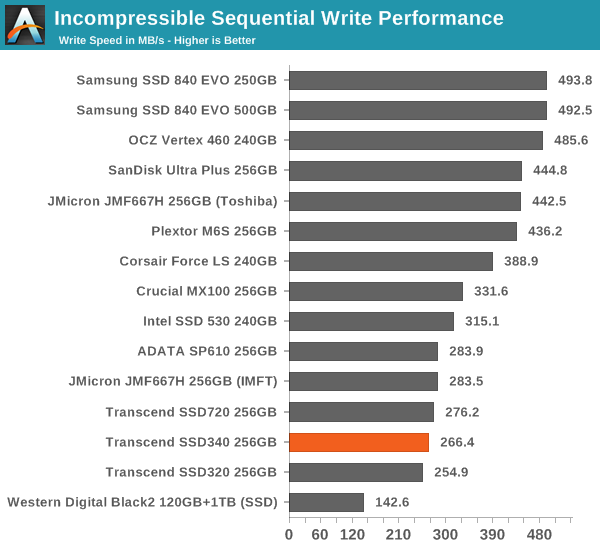










57 Comments
View All Comments
hojnikb - Monday, August 4, 2014 - link
Could it be possible to flash newer refrence firmware to it ?I know this have been done in the past, because i've flashed my Crucial V4 with newer firmware that crucial offered. I wonder if its the same with Jmicron
solnyshok - Monday, August 4, 2014 - link
Whenever I read about slow ssd, I wonder if "the one" that I need is going to happen. If manufacturers read this - here is the niche for HTPC. I need a silent movie/torrent storage. 1TB at $200-250 would be a good start. Performance/power saving aren't that important, as long as it can sustatin 130MB/s sequential read/write (bottleneck of home gigabit network) and 10,000+ iops (to avoid jerkiness of video playback during concurrent torrent seeding)ddriver - Monday, August 4, 2014 - link
Most HDDs do 130 MB already. You can avoid "jerkiness" by tweaking buffering/caching for playback and torrents respectively.leexgx - Tuesday, August 5, 2014 - link
can you fix the Crucial MX100 OP results and lower the IOPS to to 30kas the Crucial MX100 is doing some very odd results on the 25% OP 32QD 4K Write (the last one seems an error doing 60k IOPS as its way past 50K on that last test) 412GB is making the charts go to 50k when most do not pass 25k
leexgx - Tuesday, August 5, 2014 - link
4K random Write 32Q 25% OP Crucial MX100solnyshok - Tuesday, August 5, 2014 - link
Thanks for all replies, I already have SSD (256GB 840EVO+2TB 2.5"HDD) combo in my htpc. I just wanted to go totally silent. My point was that somebody needs to pack 1TB of the cheapest flash on the cheapest controller for the lowest $/GB ratio. I appreciate replies about price-o-nomics of ssd making. If it is not feasible, oh, well, I can wait couple of years.MrSpadge - Monday, August 4, 2014 - link
You hardly gain any cost benefit by making SSDs slow. That's why you don't see the value drives you're looking for. Sounds like a 5x00 rpm HDD together with some small to medium sized SSD for the torrents is your best solution. Assuming you don't offer your entire movie collection for torrenting, of course.hojnikb - Monday, August 4, 2014 - link
If you tune your torrent client right, ANY 5400rpm hdd will be just fine. I know, because i'm using an old 2.5" drive in my nas and can do multiple torrents AND streaming with ease. Its just the right tuning.wolrah - Monday, August 4, 2014 - link
It's not even tuning, just keeping preallocation on and keeping fragmentation down is enough.solnyshok - Tuesday, August 5, 2014 - link
Thanks, if that's the case, I just need to wait a bit (3 years?), until 1TB becomes cheap